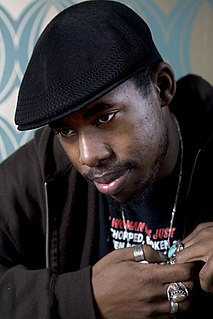A Quote by H. L. Mencken
The mistake that is made always runs the other way. Because the plain people are able to speak and understand, and even, in many cases, to read and write, it is assumed that they have ideas in their heads, and an appetite for more. This assumption is a folly.
Related Quotes
No one in this world, so far as I know--and I have searched the records for years, and employed agents to help me--has ever lost money by underestimating the intelligence of the great masses of the plain people. Nor has any one ever lost public office thereby. The mistake that is made always runs the other way. Because the plain people are able to speak and understand, and even, in many cases, to read and write, it is assumed that they have ideas in their heads, and an appetite for more. This assumption is folly. They dislike ideas, for ideas make them uncomfortable.
They always assumed that I did not speak. That I could not. So many had plotted my death, discussed it, laughed about it, even while I was in the same room, because they assumed I was mindless. Like one of the failures of their kind, born mad. But I was not a failure. I was what I was supposed to be. I was dhampir. And they never lived to tell anyone they were wrong.
The most important thing is you can't write what you wouldn't read for pleasure. It's a mistake to analyze the market thinking you can write whatever is hot. You can't say you're going to write romance when you don't even like it. You need to write what you would read if you expect anybody else to read it.
When you travel you experience, in a very practical way, the act of rebirth. You confront completely new situations, the day passes more slowly, and on most journeys you don't even understand the language the people speak....You begin to be more accessible to others, because they may be able to help you in difficult situations.
When philosophers talk about reason they often have in mind Having been in the business of philosophy more than half my life, I have learned that reason doesn't change many minds. But there's a more ordinary sense of resonableness, which involves not just logic but a sensitivity to other peoples real concerns, a desire to understand, even when you don't agree. Many people are reasonable in this way.I'm willing to think that the world will be made better by the conversations of reasonable people, even if there are unreasonable people and people who don't want to converse as well.
Sometimes we have thoughts that even we don’t understand. Thoughts that aren’t even true—that aren’t really how we feel—but they’re running through our heads anyway because they’re interesting to think about. If you could hear other people’s thoughts, you’d overhear things that are true as well as things that are completely random. And you wouldn’t know one from the other. It’d drive you insane. What’s true? What’s not? A million ideas, but what do they mean?
I can write any kind of novel I want, any time, and sell it, but there's not that many people watching it. Even a low-rated TV show is a couple million more people than read my books. You want to be read, in essence. If you're a television writer, you're a writer and you want people to read your stuff. You're still reaching a bigger audience, that way. That's a philosophical way to look at it.
Incredulity is not wisdom, but the worst kind of folly. It is folly, because it causes ignorance and mistake, with all the consequents of these; and it is very bad, as being accompanied with disingenuity, obstinacy, rudeness, uncharitableness, and the like bad dispositions; from which credulity itself, the other extreme sort of folly, is exempt.
Those who read books cannot understand the teachings and, what's more, may even go astray. But those who try to observe the things going on in the mind, and always take that which is true in their own minds as their standard, never get muddled. They are able to comprehend suffering, and ultimately will understand Dharma. Then, they will understand the books they read.
We, including many Christians, read the Bible through "eyes" conditioned by, and even accommodated to, modern Western culture plus the influences of messages and ideas from other cultures that are alien to the worldview of the biblical writers. Therefore, in order fully to understand the Bible and allow the Bible to absorb the world (rather than the world - culture - absorb the Bible) we must practice an "archaeology" of the biblical writers' implicit, assumed view of reality.
I'm afraid that we all make mistakes. One of the things that defines our character is how we handle mistakes. If we lie about having made a mistake, then it can't be corrected and it festers. On the other hand, if we give up just because we made a mistake, even a big mistake, none of us would get far in life.
I definitely learned to communicate with other musicians better. I used to feel so intimidated by guys who can read notes, like, "Oh my god, they're gonna think I'm not even gonna be able to sit at the table." But I've come to see that a lot of these musicians don't know how to read music either, and that made me feel good. I could just come up with ideas or show somebody things and get the ideas across.
I'm a professor of comparative literature, among other things, so I'm able to read in a couple of other languages, and I understand that not everyone is, not everyone can, although it is quite stunning how many people do read Spanish in the United States, but moving between languages is also extremely helpful.




































